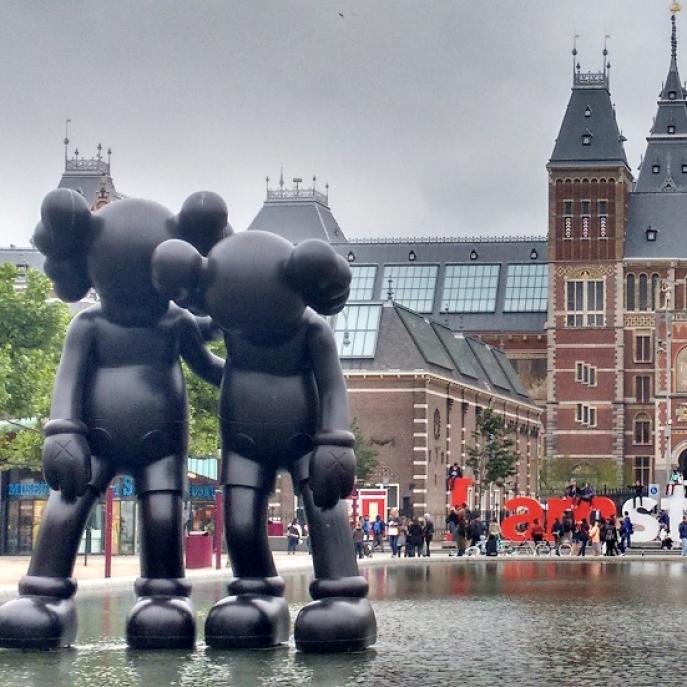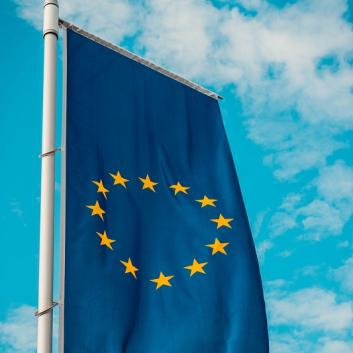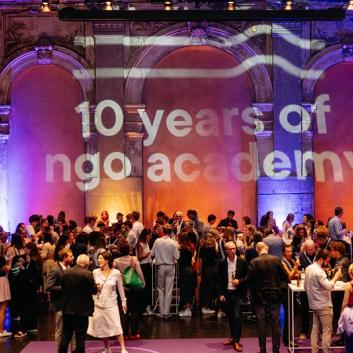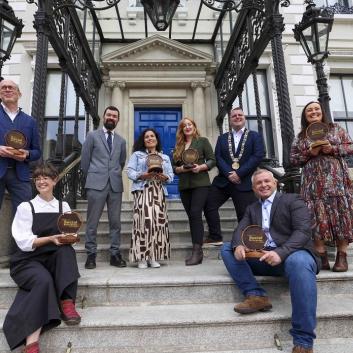Dutch social enterprises have a strong influence on building a new economy
A new research report from Social Enterprise Netherland revealed the pioneering role of mission-driven enterprises in the business community to facilitate a transition towards a more sustainable economy and contribute to reach the United Nations Sustainable Development Goals.
The Transition Theory shows that small, innovative players – niche actors – are of crucial importance in accelerating the process of building back better from the COVID-19 pandemic. Social enterprises – companies with a primarily social mission – are the pioneers in the transition to a new economy.
Many social enterprises focus not only on the direct positive impact they create with their own product or service but also aim to influence other companies to act more sustainably.
Social Enterprise Netherland (NL) has conducted the ‘Social Enterprises as Influencers of the Broader Business Community’ research based on thorough academic literature research and inspiring examples from the Dutch social enterprise sector.
The report found that there are three important ways in which social enterprises can influence the business community, which are at the core of their ‘model of influencing’:
1. ‘Raising the possible’ (showing that it is possible to do business sustainably),
2. ‘Raising the desirable’ (showing that it is desirable to do business sustainably),
3. ‘Raising the acceptable’ (showing that it is unacceptable not to do business sustainably).
“People might think that social enterprises are very small as compared to the industry leaders. Can they really make a change?
This report shows that they can actually play a crucial role in the transition of the business community towards creating a more sustainable economy, by showing that it is in fact possible to make a profit with purpose by disrupting the mainstream business as usual practices.” says Simone van Dijk Social, one of the researchers contributed to the report from Social Enterprise Netherland (NL).
The ‘model of influencing’ describes eleven ‘influencing activities’: concrete strategies that social enterprises employ to influence. Different inspiring examples from the Dutch social enterprise sector illustrate these activities.

For example, social enterprise Tony’s Chocolonely has a mission statement that goes beyond their products: “Together we make 100% slave free the norm in chocolate”. This explicit mention of changing the norm clearly references changes beyond Tony’s own chocolate bars.
Their case shows that it is possible to make fair chocolate that has a positive impact on local communities and stimulates other chocolate-making companies to copy their methods through their Tony’s Open Chain platform.
Albert Heijn, the largest retailer in the Netherlands, followed the example and became an official ‘mission ally’ for its private-label chocolate brand Delicata.
"Real social entrepreneurs want systems to change, transitions that take years, and that can hurt. It is about operating radically differently.
As a social entrepreneur, you should think about: where are you in that landscape, in the system? What do you want to change? Do you want to set up a whole new system, or turn the current system around? Is what you’re doing impactful, or are you merely limiting the damage?” says Arjen Boekhold, Game Changer Unltd., former Tony’s Chocolonely.
Another precedent showed by social enterprise Frank About Tea when they published an ‘Open letter to the CEO of Unilever’ in the Dutch Financial Times.
With this action, they actively raised awareness about the inequalities in the tea sector amongst consumers and professionals, stimulating them to hold companies accountable for their responsibility in the supply chain.
Social enterprises can also contribute to raising official standards, such as voluntary industry agreements, certifications and even legislation, thereby making it unacceptable not to do business sustainably.

For instance, Fairphone is a social enterprise company which aims to develop smartphones that are designed and produced with minimal environmental impact.
They are bringing together major industry players in the Fair Cobalt Alliance to jointly improve the conditions in which cobalt, an essential resource to produce smartphones, is mined in the Democratic Republic of Congo.
"Our strength lies in giving an example with the product, with the service itself.
[…] We have to accomplish, to prove, that a product or service like ours has a sustainable business case to put in the market, and develop a sourcing model,” says Monique Lempers, Impact Innovation Director at Fairphone.
The ‘Social Enterprises as Influencers of the Broader Business Community’ research shows that social enterprises – often relatively small players in their industries – can play a crucial role in the transition to a new economy.
The results provide concrete tools to help social and other innovative companies from around the world accelerate the sustainability transitions in their industries through influencing.
Simone van Dijk from Social Enterprise NL explains further the relevance of their research:
“We conducted this research because we found there was still little known about the way social enterprises influence the broader business community – even when this is often at the core of a social enterprise’s mission.
We hope that the findings in this report do not only help value-driven enterprises to see and enhance their influencing role, but also show corporates the relevance of (working together with) social enterprises.
It also shows the importance of funding long term systems change, stimulate researchers to investigate this further, and help support organisations such as ours to support their members to unlock business potentials through their influencing role.”
The recently released Social Enterprise Monitor 2020 also showed that 96% of Dutch social enterprises actively aims to influence other organisations. The Social Enterprise Monitor is the largest annual survey of social enterprises in the Netherlands, carried out by Social Enterprise Netherland (NL) in collaboration with multiple partners and with the support of PwC.
Social Enterprise NL is a national membership body that represents, connects and supports the growing community of social enterprises in The Netherlands with over 400 members to date.
Their mission is to build an economy that works for all people: circular, inclusive and poverty-free. The organisation offers its members different kinds of business support and works on a more favourable ecosystem for social entrepreneurs in the Netherlands and beyond.
















